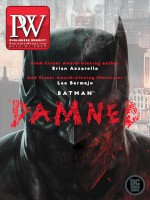For the most part, publishing industry stocks have fallen out of favor with investors. After declining 21.2% in 2018, companies on the Publishers Weekly Stock Index dropped 9.9% in the first six months of 2019, compared to a 14% increase recorded by the Dow Jones Industrial Average. Stock prices of only two of the 10 companies listed on the PWSI rose in the first six months of 2019, and the two companies whose share prices increased are diversified media businesses. News Corp’s share price jumped 20.8% in the first half of the year, helped by the ongoing strong performance of its HarperCollins subsidiary. Simon & Schuster also had a solid first quarter, but its performance has less of an impact on the stock price of parent company CBS than HC has on News Corp.
The worst-performing stock on the PWSI in the first half of 2019 was LSC Communications. The share price of the printer fell almost 54% in 2018 and declined another 47.6% in the first six months of 2019, to $3.67 per share. The company’s share price was not helped by the June decision of the Department of Justice to file a lawsuit to block LSC’s acquisition by Quad. After the DOJ announcement was made, LSC’s share price plunged 27%. Houghton Mifflin Harcourt’s share price tumbled 35% in the first half of 2019, hurt by disappointing first quarter results.
Scholastic’s stock price was also punished by investors in the first half of 2019, due in part to the company lowering its estimates for the fiscal year that ended May 31. The publisher said it expects revenue to be about $1.64 billion when it announces results later this year, down from previous estimates of $1.65 billion–$1.70 billion. Adjusted earnings before interest, taxes, depreciation, and amortization (EBITDA) was put at $120 million–$130 million, down from between $160 million and $170 million.
Scholastic said the revision to its fiscal 2019 forecast was due to two factors: lower-than-expected book club revenue—largely due to the March implementation of its sales tax collection program in response to the Supreme Court Wayfair ruling—and higher expenses in its book fair division that originally planned.
Another educated-related stock, Barnes & Noble Education, also took a big hit in the first half of 2019, with its shares down 16.2%, to $3.36 per share. For the fiscal year ended Apr. 27, 2019, the company’s revenue fell 7.7% compared to fiscal 2018, though it did cut its net loss.
The announcement by Barnes & Noble that it had agreed to be acquired by the hedge fund Elliott Advisors did not prevent the bookstore chain’s stock price from falling 5.6% in the first half of 2019, to $6.69 per share. Elliott is paying $6.50 per share to buy the company.
Amazon—which was dropped from the PWSI last year since, though its actions have a huge impact on the book world, its book-related business is a tiny part of its company now—saw its stock price rise 26% in the first six months of the year, closing at $1,893.13 per share on June 28.
Stock Watch, 2019
| Company | Dec. 31, 2018 | June 28, 2019 | Change |
|---|---|---|---|
| News Corp | 11.55 | 13.96 | 20.8% |
| CBS | 43.72 | 48.73 | 11.4% |
| John Wiley | 46.97 | 45.86 | -2.3% |
| Barnes & Noble | 7.09 | 6.69 | -5.6% |
| Pearson | 11.94 | 10.36 | -13.2% |
| B&N Education | 4.01 | 3.36 | -16.2% |
| Scholastic | 40.26 | 33.17 | -17.6% |
| Educational Dev. Corp. | 8.53 | 6.99 | -18.0% |
| Houghton Mifflin Harcourt | 8.86 | 5.76 | -35.0% |
| LSC | 7.00 | 3.67 | -47.6% |
| Publishers Weekly PW Stock Index | 198.28 | 178.55 | -9.9% |
| Dow Jones Average | 23,327.46 | 26,599.96 | 14.0% |



 Volume 266
Issue 27
07/08/2019
Volume 266
Issue 27
07/08/2019





